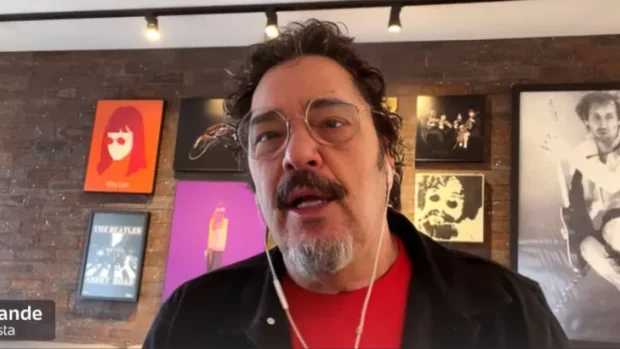Maybe the easiest way to understand why Pep Guardiola using the University of Manchester as a stage to highlight the humanitarian disaster in Gaza felt so unusual is to check out the website of the football club that employs him.
Manchester City covered Monday night’s event where Guardiola was awarded with an honorary degree, dressed in a cap and gown, but there was no mention of Gaza in the story published on the club’s online media channels. Instead, the club’s article focused on Guardiola expressing his love of a city which he has called home for nine years.
Advertisement
Now, to be clear, this is not a criticism of City. When religion, politics, conflict and death converge, clubs — whatever their standing in the game — almost invariably want to appear neutral. Generally, they know that if they engage with something even vaguely topical, it risks upsetting someone, somewhere, a point which presents myriad risks.
When, for example, Liverpool’s former manager Jurgen Klopp told The Guardian in 2018 that Britain’s exit from the European Union “made no sense” and called out the politics of Donald Trump, Boris Johnson and Nigel Farage, his quotes did not appear on any of the official platforms of his employer. You can understand why: the club’s fanbase, which runs into the millions, is bound to include many who were sympathetic to the Brexit cause.
Football can be a tunnel-vision industry. Very few of the sport’s institutions and, by extension, the individuals who serve as their figureheads, want to do anything, or say anything, by venturing into situations they ultimately have no control over. There is simply too much to lose.
All of this explains why it was good to hear Guardiola talk about bigger issues than inverted full-backs or box midfields.
Not that it should have been a complete surprise. Guardiola has consistently expressed support for Catalan independence, appearing at a rally in 2017 where he cited alleged “abuses of an authoritarian (Spanish) state”. He wore a yellow ribbon, the symbol of the pro-Catalan cause, for many months as an act of solidarity.

Pep Guardiola wears the yellow ribbon, a symbol used by Catalan separatists in Spain, in 2017 (Oli Scarff/AFP/Getty Images)
Inevitably, Guardiola’s backing of specific causes has invited accusations of hypocrisy. While he was quick to call out the Spanish state’s treatment of his home region, he has had rather less to say about the human rights record in Abu Dhabi, the source of Manchester City’s money. A 2024 Amnesty International report detailed how the United Arab Emirates “persisted in criminalizing the rights to freedom of expression and peaceful assembly”.
Advertisement
At Manchester University, Guardiola, somewhat imaginatively, used the tale of a bird trying to stop a forest fire by using droplets of water from its mouth, despite the doubts of a snake. “In a world that often tells us that we are too small to make a difference, that story reminds me that the power of one is not about the scale, it’s about choice,” Guardiola said. “About showing up, about refusing to be silent or still when it matters most.”
Guardiola would stress his comments were not driven by “ideology,” and he did not want to appear to be taking sides, only looking at consequences rather than causes or motivations, before applying what he has seen to his relationship with his own family.
This sort of context often gets lost in social media reaction and, it seems, in the reporting of some Israeli news outlets which focused their coverage on some of the things Guardiola did not mention, including the October 7 attacks, or Hamas taking Israeli hostages.
Guardiola, nevertheless, handled the topic with the level of sensitivity that is not always found at a time when, across a range of political issues, many public figures seem to want to prove themselves right and everyone else wrong.
It is often easy for football managers, in their public appearances away from pre- and post-match press conferences, to play to the gallery by highlighting local or even broader issues that face some of their fanbase but this was not one of those occasions. Guardiola said what he said because he believes it and that showed both courage and a curiosity about the world which befits a man who has worked in six countries across Europe, North America and Asia.
Managers or head coaches often like to seem worldly and sage but, in truth, the job often only affords relatively narrow experiences due to the immediate pressures of a results-driven industry that means when you start losing, you are out of work quicker than you can say “Rodri”. Their existence becomes a routine of home, training ground and hotel. If they switch the television on, it is often simply because they are watching a recent match of an opponent, or reviewing one of their own team’s games.
Advertisement
Even though Carlo Ancelotti is considered cultured because he successfully worked in each of the major five European leagues before landing the job as Brazil’s national team manager, we barely know anything about his views on the world around him. Maybe that is because he is smart enough to realise that keeping your head down and not making enemies works pretty well.

Fans know little of Carlo Ancelotti’s world view (Franklin Jacome/Getty Images)
By contrast, another great modern manager, Jose Mourinho, has plenty of adversaries, having worked in the same number of countries during a career nearly as long as Ancelotti’s. Unlike Ancelotti, Mourinho had virtually no playing career to speak of and has got to where he is only because of an obsession with bettering himself. If there is time for anyone outside his own family, it has not really shown.
Guardiola, by comparison, has reminded the world that he does have a hinterland and that he is prepared to use his considerable platform to speak out on causes that matter to him.
For that, he should be applauded and others like him encouraged.
(Top photo: Ben Roberts – Danehouse/Getty Images)
This news was originally published on this post .









Be the first to leave a comment